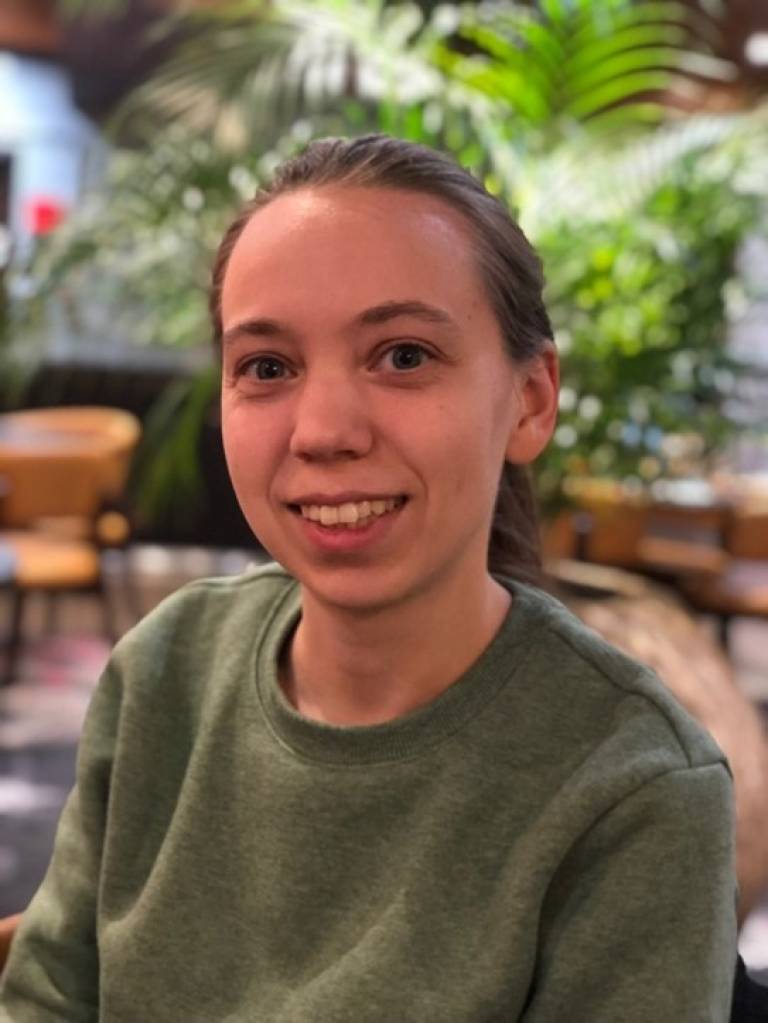Being queer and researching queer people
13 June 2023
Mie Astrup Jensen, PhD candidate in Gender & Sexuality Studies and Hebrew & Jewish Studies shares what it's like being a queer scholar researching LGBTQ+ lived experiences.

My name is Mie and I’m a PhD candidate in Gender & Sexuality Studies and Hebrew & Jewish Studies. My research focuses on queer Jewish women’s lived experiences and practices in England and Israel. In addition to this, I am a PGTA in gender studies and a RA working with Dr Cathy Elliott on queer pedagogy in higher education. This Pride Month I'm discussing being a queer scholar researching LGBTQ+ lived experiences.
Research evidence suggests that LGBTQ+ researchers remain marginalised and/or minoritized. Veldhius (2022) discusses the potential experiences of LGBTQ+ researchers, which includes receiving hate emails when recruiting participants because of the research topic, mental health problems, and being rejected by journals that do not consider LGBTQ+ research generalisable. An article like this, therefore, makes me reflect on my own research experiences.
During my second year, I conducted semi-structured interviews with 40 queer Jewish women in England and Israel to understand how queer Jewish women’s lived experiences and practices are understood, experienced, negotiated, and expressed by queer Jewish women themselves. Working with religion and LGBTQ+ studies, I had concerns about how my research would be received and perceived.
There was such a big interest in my research that I quickly had to increase my participant number. My interview structure was relatively open-ended, which allowed the participants to share their story in their own words – a decision I made because LGBTQ+ people have very different lived experiences. The interviews were enlightening, informative, thought-provoking, and thoughtful. Some participants expressed vulnerability and reflected on emotional moments of their lives. Multiple participants noted that it felt therapeutic to be able to reflect on their lives in their own words, and that they had learned some things about themselves during the interview. Many also expressed gratitude for me doing this research because it is often overlooked.
Reflexivity and positionality are important to the data analysis and research write up. I have, as most LGBTQ+ individuals, my own experiences of homophobia and navigating heteronormativity. Indeed, I recognise some of my participants’ experiences of discovering their sexuality and how emotional it is to come out. Moreover, despite the fact that I have, thankfully, never received any hateful comments or emails, I frequently found myself introducing my research as being about ‘Jewish women’s lives’ rather than ‘queer Jewish women’s lives’ out of a concern of how people would react to the topic, which I am currently trying to process.
Despite the challenges of conducting research on LGBTQ+ topics, this research is vital because it offers insights into lived experiences and social realities – which can lead to positive changes in people’s lives and communities. It is my hope that LGBTQ+ research will be recognised as being valuable rather than being marginalised.
 Close
Close

